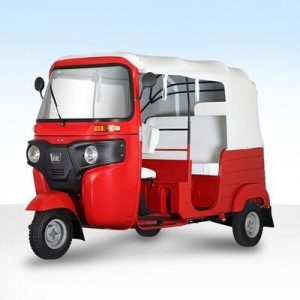
Agriculture
June 23, 2024
Bajaj RE 4S Tuk Tuk
Read SolutionImplemented by
Bajaj
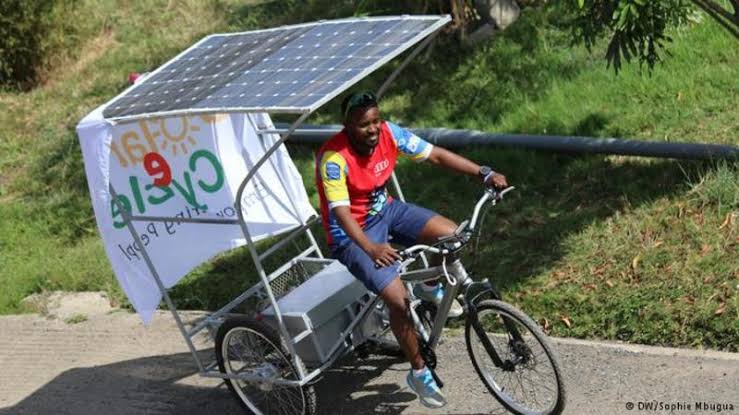
Updated on June 22, 2024
·Created on September 28, 2019
E Tuk Tuk is a solar powered electric vehicle for Africa.
E Tuk Tuk is a 3 or 4-wheeled vehicle that operates solely on solar power. It can travel up to 50 Km/day at a speed of 30 Km/h, with a maximum load of 50 kg. Interview with manufacturer It can also travel up small inclines at a speed of 20 Km/h. E Tuk Tuk offers the option of using excess electricity from the battery to provide for a home in off-grid rural communities. The needs of a home start at 250 J/day, while storage capacity of the vehicle starts at 1500 J/day under normal sun conditions.
Target SDGs
SDG 7: Affordable and Clean Energy
SDG 8: Decent Work and Economic Growth
Market Suggested Retail Price
$1,000.00
Target Users (Target Impact Group)
Household, Community
Distributors / Implementing Organizations
Solar E Cycles
Regions
Africa
Manufacturing/Building Method
E Tuk Tuk is designed and manufactured locally using readily available components in the market. Interview with manufacturer
Intellectural Property Type
Open-source
User Provision Model
The product is still in the prototype stage.
Distributions to Date Status
None. The product is still in the research and development phase. As of 2018, the company has produced 10 prototypes.
Capacity
2
Gear Ratio
There is no gear ratio as the manufacturer uses DC motors. Interview with manufacturer
Maximum load capacity (kg)
150 kg
Design Specifications
E Tuk Tuk is composed of the following: a 300 W solar panel, 350 W DC motors, MPPT charge controller, motor drives, accelerator and a 12 V, 40 AH battery.Interview with manufacturer
Technical Support
Provided by the manufacturer
Replacement Components
Replaceable components include the solar panel and battery.
Lifecycle
Panels have an expected lifetime of 25 years, the batteries 6 years, and the motor 10 years. Interview with manufacturer
Manufacturer Specified Performance Parameters
Mobility and power that can pay for itself
Vetted Performance Status
None
Safety
The manufacturer has included reflectors, a braking system and lights in the design. Interview with manufacturer
Complementary Technical Systems
None
Academic Research and References
Udupa, G., Freeman, J., Nimbewal, V., Choudhary, R. K., Sasikumar, S., Nair, S. V., 2016, Design and manufacture of Amrita Surya Vahini — A solar auto rickshaw, International Conference on Robotics and Automation for Humanitarian Applications (RAHA), pp. 1-6
Mulhall, P., Lukic, S. M., Wirasingha, S. G., Lee, Y., Emadi,A., 2009, Solar/battery electric auto rickshaw three-wheeler, IEEE Vehicle Power and Propulsion Conference, pp. 153-159
Reddy, N. N., Sarma, P. S., 2012, Solar Powered Vehicle, International Journal of Advanced Research in Computer Science and Electronics Engineering (IJARCSEE), 1(10), pp. 36-39
Sameeullah, M., Chandel, S., 2016, Design and analysis of solar electric rickshaw: A green transport model, International Conference on Energy Efficient Technologies for Sustainability (ICEETS), pp. 206-211
Saleh, N., Mushtaq, K., Zaidi, A.A., Abbasoglu, S., Faiz Ahmed, S., 2016, Design and Performance Analysis of a Solar Powered Hybrid Rickshaw for Commercial Use in Pakistan, Journal of Environmental Science and Technology, 9, pp. 472-480
Compliance with regulations
The manufacturer is still working on the design to be compliant with international regulations. Interview with manufacturer
Evaluation methods
The manufacturer are currently evaluating the tuk tuk’s speed, battery capacity and ergonomics. Interview with manufacturer
Other Information
Users pay a small deposit (100 USD = 10000 KES) at first to lend the product followed by monthly payments of 50 USD (5000 KES) using M-Pesa, mobile phone-based money transfer service. This way, users can own the tuk tuk within 3 years.

Agriculture
June 23, 2024
Implemented by
Bajaj
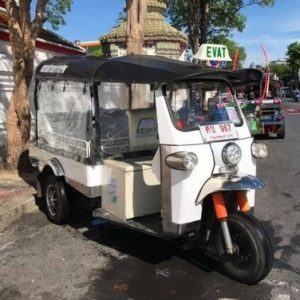
Agriculture
June 20, 2024
Implemented by
Electric Vehicle Association of Thailand (EVAT)
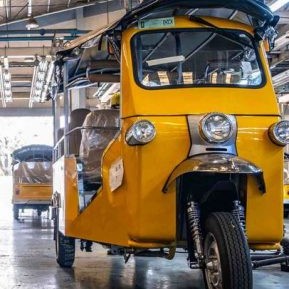
Agriculture
June 20, 2024
Implemented by
MuvMi
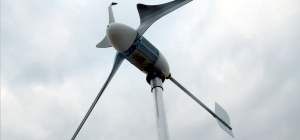
Agriculture
December 18, 2024
Implemented by
SkyWind Energy GmbH
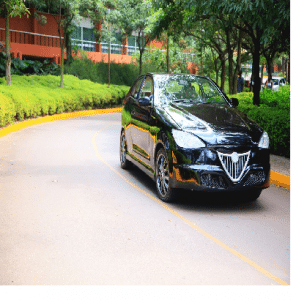
Agriculture
June 23, 2024
Implemented by
Kiira Motors Corporation
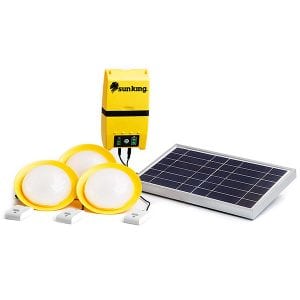
Agriculture
December 7, 2024
Implemented by
Sun King
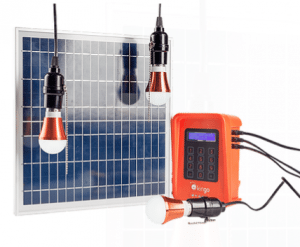
Agriculture
December 7, 2024
Implemented by
Kingo Energy
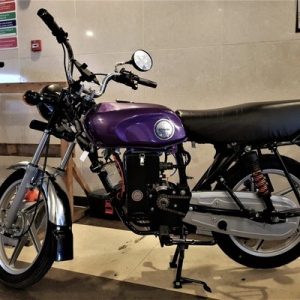
Agriculture
June 27, 2024
Implemented by
Bodawerk International Ltd
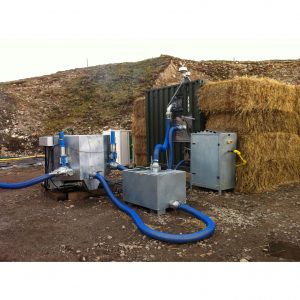
Agriculture
December 23, 2024
Implemented by
QUBE Renewables Ltd.
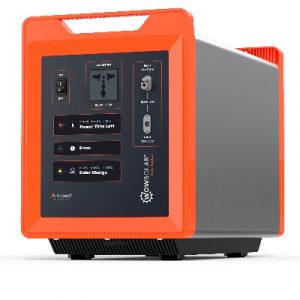
Agriculture
December 23, 2024
Implemented by
Amped Innovation PBC
Have thoughts on how we can improve?
Give Us Feedback